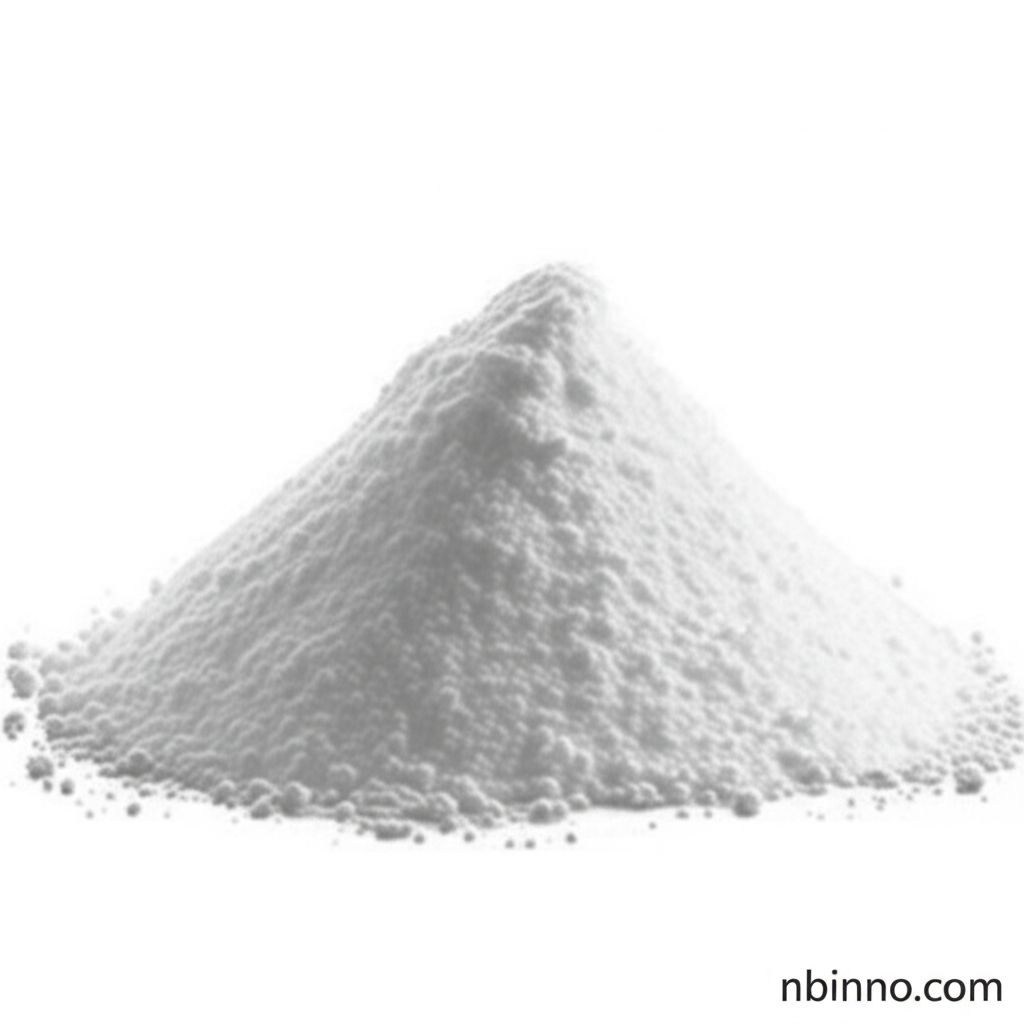Magnesium Stearate: The Essential Lubricant for Pharmaceutical Tablets
Discover how magnesium stearate optimizes tablet manufacturing and drug delivery.
Get a Quote & SampleProduct Core Value

Magnesium Stearate Powder
Magnesium stearate is a crucial pharmaceutical excipient, widely utilized as a lubricant, anti-adherent, and glidant in tablet manufacturing. Its primary function is to prevent ingredients from sticking to equipment during compression and to improve the flowability of powder blends, ensuring consistent tablet quality and efficient production processes.
- The impact of magnesium stearate on tablet properties is significant, influencing mechanical strength, ejection force, disintegration, and drug release rates, making it a key consideration in formulation development.
- Understanding pharmaceutical excipient lubrication performance is vital for optimizing tablet manufacturing, and magnesium stearate plays a central role in this aspect.
- The study of magnesium stearate fatty acid composition reveals how variations in stearate and palmitate content can affect its effectiveness and interaction with other formulation components.
- Optimal tablet manufacturing requires careful control of magnesium stearate concentration and blending time to achieve desired tablet characteristics and avoid unwanted side effects.
Key Advantages
Enhanced Tablet Production
By acting as a lubricant, magnesium stearate significantly reduces friction during tablet compression, minimizing wear on machinery and ensuring smoother production runs, contributing to efficient tablet manufacturing best practices.
Improved Powder Flowability
This excipient acts as a glidant, preventing powder particles from sticking together and ensuring consistent die filling, which is crucial for achieving uniform tablet weight and content uniformity, key in quality control in tablet manufacturing.
Controlled Drug Release
The presence and properties of magnesium stearate can influence how quickly a tablet disintegrates and releases its active pharmaceutical ingredient, impacting the overall drug delivery systems optimization.
Key Applications
Tablet Lubrication
Its primary role is to prevent tablet adhesion to die walls and punches during compression, ensuring easy ejection and preventing damage to tablets, a core aspect of excipient functionality in pharma.
Capsule Manufacturing
Similar to tablets, it aids in the smooth filling of capsules by preventing powder sticking to filling equipment, thus improving efficiency in capsule production.
Powder Flow Enhancement
As a glidant, it reduces inter-particle friction, improving the flowability of powder blends, essential for consistent dosing and tablet weight.
Pharmaceutical Formulations
It is a widely used excipient across various oral solid dosage forms, contributing to the overall processability and quality of the final pharmaceutical product.
